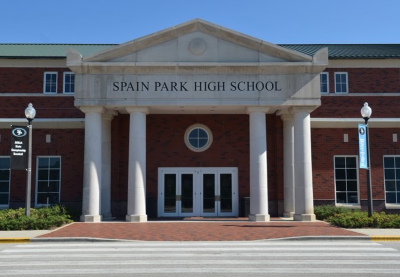Any hate incident that occurs at school should give educators pause, but every now and then we’ll come across one that implores us to reiterate the importance of anti-racist and anti-bias work.
Over the weekend, a group of students in Hoover, Alabama, were seen on video making racist and anti-Semitic remarks while hanging out at a residence. The student who recorded the episode appeared to be entertained by his classmates’ hateful comments about the Holocaust and black people.
One student exclaims, “F--- [n-word], f--- Jews!” Another insists, “If the Holocaust never happened, Jews would be running the world right now.”
A girl chimes in, “Jews are fine because they’re white. … We just need [n-word] gone.” She then wonders what they’d do with biracial people, calling them “mixed Oreos.” Another student says they should be sent to concentration camps.
School officials confirmed on Monday that students in the video were enrolled at the two high schools in the district—Spain Park High School and Hoover High School.
Apparently, this incident is not an outlier. Last year, a Hoover teacher resigned after using a racial slur in the classroom.
And on Tuesday, which was supposed to be dedicated to critical conversations about the video, a teacher allegedly used the n-word and was later dismissed for the day. According to one student, this teacher had told the class that it was OK for her to use the slur because everybody else does.
In a statement to AL.com, an African-American student said after the video went viral, “Honestly, I am so sick and tired of going through this same routine at Spain Park High School. … I’ve been through so many personal experiences. This needs to stop.”
This sentiment is being echoed by former and current Spain Park students on social media posts, who assert this is par for the course at the predominately white high school.
We know that many schools grapple with hate and bias daily; schools are a microcosm of the world. Each month, we report dozens of hate incidents, from racial slurs and blackface to anti-Semitic graffiti and homophobic violence.
It’s a teachable moment about race, ethnicity, religion, privilege and inequity in this country that requires actionable steps.
While these hate incidents at school are usually not crimes, we should note that what we’re seeing in schools is in line with the pervasiveness of hate across the United States. For example, the latest FBI report, released last October, showed nearly a 17 percent increase in U.S. hate crimes in 2017. It includes the fact that 10.5 percent of hate crimes cited in the report happened at schools and colleges.
The morning after the video from Hoover went viral on social media, district officials released a statement saying it was in direct conflict with the school system’s values and its mission.
“Our school administrators are carefully investigating the situation in order to assess our options under the Code of Student Conduct,” the statement reads. “In the meantime, the Hoover school community may be assured that the Board, together with its administrative and instructional staff, remains steadfastly committed to maintaining and strengthening a school culture that encourages and embraces diversity, inclusiveness, and tolerance.”
According to local news reports, Spain Park High School officials are meeting with each grade level in a series of assemblies to discuss the video.
It’s heartening that the school addressed this event immediately. We hope they’ll continue to work at rooting out hate on their campus, extend support for students who are harmed and set high expectations to prevent another incident from happening.
Teaching Tolerance reached out to both the principal of Spain Park High School and superintendent of Hoover City Schools in October 2018 following a hate incident. We reached out again following this most recent event, but we have received no response at the time of this publication. As we do with all hate incidents at school, we offered our resources, including Responding to Hate and Bias at School, a guide that helps educators tackle issues before, during and after an incident.
For everyday instances of bias, we also offer Speak Up at School, which helps educators and students respond to biased speech. And for more sustained discussions about critical topics, we suggest our Let’s Talk! guide, which helps educators facilitate tough conversations with students.
The ideas expressed by these students in Hoover cannot go unanswered. These students may be young and ignorant now, but they and their classmates are our future police officers, judges, doctors, bankers, educators and legislators. How will the sentiments behind the video manifest later in their lives if we don’t make a concerted effort to teach inclusiveness and respect for all identities now?
It is imperative that we—and our young people—understand that individual acts of bias, while vile within themselves, aren’t the only concern. When people who express harmful viewpoints obtain positions of power, they fortify the structural and institutional biases that aren’t as visible.
It’s more than having a conversation. It’s more than insisting that things would be fine if we only treat each other better. It’s a teachable moment about race, ethnicity, religion, privilege and inequity in this country that requires actionable steps.
It’s up to us to stop the insidiousness of hate among our youth so that they can learn in a safe and welcoming environment, and most importantly, learn to live and work without hate and bias as adults.
Dillard is a staff writer for Teaching Tolerance.


0 COMMENTS